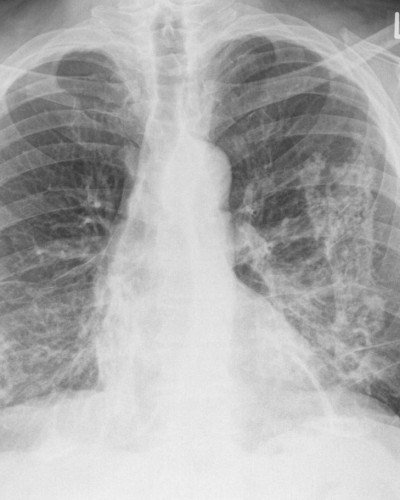Like many automakers, BorgWarner utilized asbestos as a heat resistant material in its clutches and brakes for many years.
Harmful Products and Health Consequences
From the late 1920s-1980s, they sold asbestosis-inducing auto parts to other carmakers like General Motors, which caused people who worked with the potentially carcinogenic auto parts at these companies to become sick with cancer and pulmonary problems.

Mechanics who worked with BorgWarner Company car parts at Sears also suffered from asbestosis, mesothelioma, and lung cancer. These illnesses and deaths caused many people to sue BorgWarner over personal injuries and wrongful deaths because workers were not informed that they might become sick from working with asbestos-laden car parts.

Lawsuits
In Texas, a retired mechanic who worked on brakes for more than thirty years sued over exposure to BorgWarner disk brake pads. Between 1972 and 1975, Mr. Flores would grind down the brake pads before he installed new ones. This grinding down process caused asbestos dust to fly through the air, and as a mechanic working in close proximity to this dust, Mr. Flores ended up with asbestosis.
The Texas trial court awarded him more than $150,000 in damages due to the company’s negligence and strict liability. However, BorgWarner appealed the case to the state’s Supreme Court and was ultimately victorious in defending this lawsuit because there was insufficient evidence that BorgWarner’s car parts were responsible for causing his ailment.

Learning from the Past, Bracing for the Future
In 2010, an appeals court in New Jersey addressed a case in which a widow sued BorgWarner and other companies over her husband’s mesothelioma death. Mrs. Buttitta’s husband died in the early 2000s as a result of being exposed to asbestosis-inducing car parts at General Motors. He worked on asbestos-laden clutch and brake parts but was also exposed secondhand as a child, as his dad worked a similar job that resulted in him coming home in asbestos-laden clothing. The New Jersey appellate court affirmed that BorgWarner would be responsible for paying part of a $30 million verdict.

 Rae Steinbach
Rae Steinbach
 Lauren Weinand
Lauren Weinand